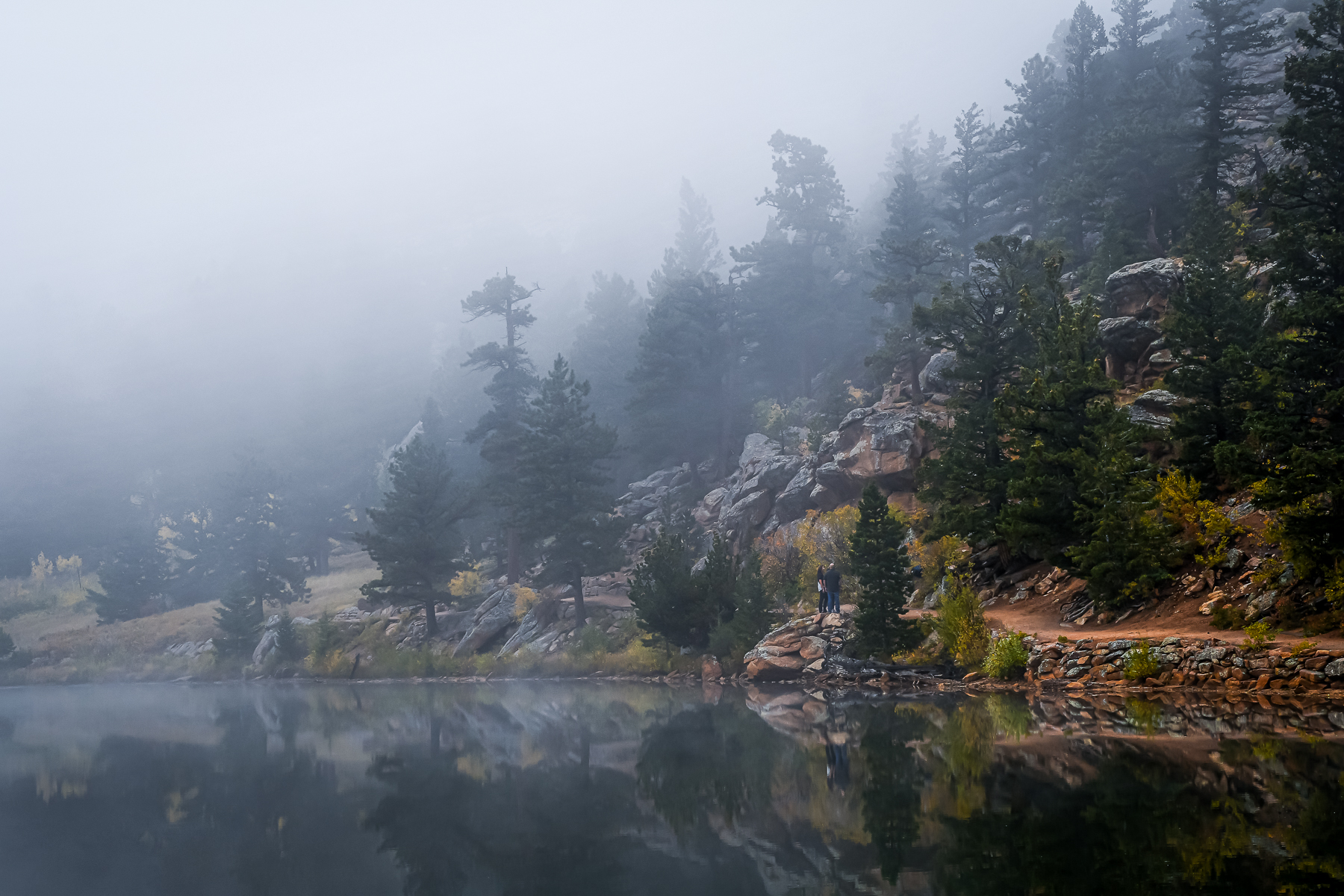I didn’t know the word “flannelgraph” when I was six years old. I only knew that the little cloth people adhered to the feltboard better than my attention stuck to the Sunday school stories. I did listen, but my imagination struggled to find something to cling to. The stories tended to be short on action and had almost no monsters at all. David-and-Goliath wasn’t bad, but there weren’t too many like that. Most seemed to have a very limited dramatic arc. Zacchaeus climbing a tree because he was short, and then Jesus inviting himself over for lunch, felt like a plot without the climax, even for a boy who enthusiastically climbed trees. Some stories consisted of just conversation. A surprising number involved sheep, which were evidently the most boring of animals. It was hard to say for certain, as I couldn’t remember having ever seen a real one, so they existed in my mind solely as cartoons: a cluster of poorly-drawn clouds with feet and heads, standing inert and blank, waiting for something to happen to them.
I felt vaguely that something must be wrong with me, because I knew these stories were Important and were supposed to Matter, to me, personally. Yet they often came across as flat and cartoonlike as the figures placed on the flannel background to illustrate the scene. Noah’s story, in which almost the entirety of humanity is extinguished, looked mostly like smiling camels and elephants enjoying a primitive wooden cruise ship. Jonah’s setbacks ought to have been chilling, but both the pictures and the telling made sure the whale (or giant fish… the ambiguity was troubling to me) wasn’t too scary or too distracting from the moral of obedience. A few episodes were such non-stories there was little to even put up on the flannelboard. Some children wanted to say Hi to Jesus, but some grown-ups said No he’s too busy doing grown-up stuff, but then Jesus said Oh it’s okay they can come over to me. It was nice of Jesus, especially seeing as I was a child myself, it just didn’t feel like a game-changer.
It was a problem, that word “nice.” Jesus was nice, the stories were nice, the cartoon animals looked nice, and I was supposed to be nice. Goodness, apparently, was largely composed of niceness. And while I couldn’t have put it all into words, I knew nice wouldn’t get the job done.
I didn’t grow up with the Narnia books, but I knew by instinct that the One in charge couldn’t be a “tame” lion… that we needed Him not to be.
The folks who wrote the lesson plans, who designed the little felt figures, I’m not sure how clearly they remembered what it was like to be a child. Even my Sunday-school teachers, who I believe were earnest, good-hearted lovers of Christ, appeared to think that “age appropriate” meant inoffensive, undisturbing. But even young children recognize that the safe and sanitized version doesn’t square with actual life. As a child you don’t know what’s going to happen, or when. Your mom might surprise you with a trip to get ice cream, or with a trip to get a tetanus shot, on any given afternoon. School bullies are more plentiful than teachers, and more watchful. The pictures in your friend’s dad’s magazine make you feel guilty of something, even though you don’t understand what you’re looking at. The world was the kind of place where you could be tromping through a sunlit meadow, and come up on a furry animal lying with its teeth bared in a rictus grin, and maggots writhing in its eyes and mouth. The world was confusing and scary and seemed to resist being managed, even by the grown-ups. The stakes were high. Christianity, whatever it was, needed to be a match for whatever was rampaging through the universe twisting and breaking things.
Slowly, without being quite aware of it, the uppermost part of me grew convinced that it wasn’t. More and more, the things I heard and saw in church felt ornamental, like doilies draped on an old woman’s easy chair. I came to see the whole enterprise as a touch “old womanish”. Made for comfort, with an air of quaintness and fussiness. (You have to remember I was very young, and had only slight acquaintance with any actual old women. The eyes of youth can miss that wrinkles may hide battle-scars, and arthritic fingers may have sure grip on unseen hilt.)
So I fidgeted in pews and mouthed yesteryear’s phrasings out of the hymnbook, and searched elsewhere for meaning. I found shelves full of other worlds to tumble into, and lingered in them as long as I could. They were improvements on the actual world, to my mind: better the dragons that came on wingbeats with fire than the ones that had somehow got inside us. Realm to realm, down the years I hunted enchantment, or mystery, or something I had no name for. And the farther afield I strayed, the fainter and more elusive was the scent. Promising leads inevitably disappointed, the lode always petering out before the riches emerged.
I grew threadbare and tattered, having sold the cow and lost the magic beans, and traded away more innocence than I could well afford. I haunted books, and they haunted me back.
At last, I circled back to the Book. And I found my child-memories did no justice to the Scriptures, which shied away not at all from ugliness or brutality in the human experience. There was a book called Lamentations that hadn’t ever come up in Sunday school. God’s law was exacting, and uncomfortably frank about just how high the stakes were. If God felt remote at times, at others He was terrifyingly close. One had to be wary about calling on Him, because He might show up in ways that required you to “gird up your loins like a man.”[1]
When the Almighty speaks out of the whirlwind, He directs Job’s attention to the wild beauty of the world He’s made: the thunder and lightning, the crash of ocean waves, the constellations wheeling above. What do all these display about Me, their Maker? He invites consideration of His living handiwork in the form of the wild ox, the horse, the hawk… building eventually to His pride and joy, the Leviathan. The Lord waxes poetic about its fangs and its armored scales, its unrelenting ferocity. Look at this sea monster I made; I delight in it! Where do you think its strength and its fierceness come from? It bears those glories because I have them in abundance to give. I am stronger and sharper than the ox’s horn, more free than hawk-flight and the wind in the stallion’s mane. I am wild in ways this abyssal terror is only a pale reflection of. All have their source in Me – can you see me aright, O man?
This then is the context needed to understand Jesus when He arrives. In the Incarnation, the God whose qualities were earlier embodied by storm and sea-beast comes enfleshed in mercy. The storm is restrained, literally, with the words “Be still.”[2] His work-roughened builder’s hands can still weave and wield a whip, yet are most often found healing the afflicted. He is unpredictable, even in healing: will he speak a word, give a gentle touch, or wipe gritty spittle-mud on my sightless eyes? His own eyes shed hot tears for His dead friend, even knowing He will call Lazarus’s soul back into his body in a minute. I think He weeps in that moment for all of us, for Death making a prey of everyone He loves. Perhaps even for Himself, as it will get its taste of Him too before long. For He has come to give Death a meal it cannot digest.
At last, the felt-board was no longer an obstacle. The obscuring veil of the flannelgraph was rent from top to bottom. The stories were alive for me. For such a One as Jesus, a stunted man would climb anything within reach for a glimpse of Him, if He came to town. And for Him to look at you, to say He’s coming to your house and wants to be your friend; yes, that is climactic. To be allowed to crowd round Him, to touch Him, to hear your name in His mouth, is the re-enchanting of a barren world. He is the God who makes the best wine ever, the God of the feast. The God who became threadbare and tattered for us, who came down into the storm of a pain-wracked humanity with us, and stilled the wind and waves, set the dead heart thrumming again. God-With-Us whose love is bottomless and wild. He is the King whose crown pierces and whose kingship draws blood. Whose risen body still bears scars, and who invites us to poke our fingers into the holes in His hands and side. For you, he says.
For me.
![]()
[1] Job. 38:3, NASB
[2] Mark 4:39, NASB
The featured image, “Autumn in Estes,” is courtesy of Steve Moon and is used with his kind permission for Cultivating.
Matthew is fascinated by the use of story to create experiences that awaken us to powerful, redemptive Truth. Several years ago he took up a quest to own and read every book ever published by C.S. Lewis. He shares his home with his wife and daughter, four cats, and a smallish serpent who has thus far never endorsed the consumption of prohibited produce.
Leave a Reply
A Field Guide to Cultivating ~ Essentials to Cultivating a Whole Life, Rooted in Christ, and Flourishing in Fellowship
Enjoy our gift to you as our Welcome to Cultivating! Discover the purpose of The Cultivating Project, and how you might find a "What, you too?" experience here with this fellowship of makers!


Matthew, this is absolutely stunning. You paint such a fierce, compelling, and TRUE picture of Jesus and belief. I’m going to be pondering this one for a while; not only for my own sake but for my kids as well. Wow. Thank you.
Oh Matthew…. I just read this piece aloud at the breakfast table, our hearts are still throbbing. Masterful, image-laden story-weaving that parts the veil on your own journey in a way that compels us to look at our own, with grace and compassion, and see the God of storms and sea-beasts come down to us in flesh… Just so grateful. Thank you.
This is truly amazing and inspiring, Matt! You have been given a wonderful talent. Thank you for sharing!
What an awesome writing. Such an inspiring perspective on God’s Word. It really made me stop and think. Congratulations Matt, keep writing you have a true gift.❣️